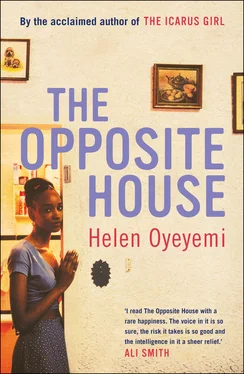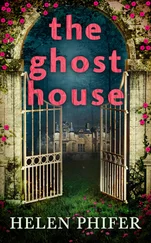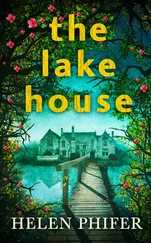Helen Oyeyemi - The Opposite House
Здесь есть возможность читать онлайн «Helen Oyeyemi - The Opposite House» весь текст электронной книги совершенно бесплатно (целиком полную версию без сокращений). В некоторых случаях можно слушать аудио, скачать через торрент в формате fb2 и присутствует краткое содержание. Год выпуска: 2008, Издательство: Bloomsbury UK, Жанр: Современная проза, на английском языке. Описание произведения, (предисловие) а так же отзывы посетителей доступны на портале библиотеки ЛибКат.
- Название:The Opposite House
- Автор:
- Издательство:Bloomsbury UK
- Жанр:
- Год:2008
- ISBN:нет данных
- Рейтинг книги:4 / 5. Голосов: 1
-
Избранное:Добавить в избранное
- Отзывы:
-
Ваша оценка:
- 80
- 1
- 2
- 3
- 4
- 5
The Opposite House: краткое содержание, описание и аннотация
Предлагаем к чтению аннотацию, описание, краткое содержание или предисловие (зависит от того, что написал сам автор книги «The Opposite House»). Если вы не нашли необходимую информацию о книге — напишите в комментариях, мы постараемся отыскать её.
The Opposite House — читать онлайн бесплатно полную книгу (весь текст) целиком
Ниже представлен текст книги, разбитый по страницам. Система сохранения места последней прочитанной страницы, позволяет с удобством читать онлайн бесплатно книгу «The Opposite House», без необходимости каждый раз заново искать на чём Вы остановились. Поставьте закладку, и сможете в любой момент перейти на страницу, на которой закончили чтение.
Интервал:
Закладка:
Helen Oyeyemi
The Opposite House
For Jason Tsang
(if there is. . go and get it)
There’s been a Death, in the Opposite House,
As lately as Today –
I know it, by the numb look
Such Houses have — alway –
Emily Dickinson1 telling it slant
Sometimes a child with wise eyes is born.
Then some people will call that child an old soul. That is enough to make God laugh. For instance there is Yemaya Saramagua, who lives in the somewherehouse.
A somewherehouse is a brittle tower of worn brick and cedar wood, its roof cradled in a net of brushwood. Around it is a hush, the wrong quiet of woods when the birds are afraid. The somewherehouse is four floors tall. The attic is a friendly crawl of linked rooms, aglister with brilliant mirrors propped against walls and window ledges. On the second floor, rooms and rooms and rooms, some so tiny, pale and clean that they are no more than fancies, sugar-cubed afterthoughts stacked behind doorways. Below is a basement pillared with stone. Spiders zigzag their gluey webs all over the chairs. The basement’s back wall holds two doors. One door takes Yemaya straight out into London and the ragged hum of a city after dark. The other door opens out onto the striped flag and cooking-smell cheer of that tattered jester, Lagos — always, this door leads to a place that is floridly day.
The Kayodes live on the third floor, in three large rooms criss-crossed with melancholic skipping ropes of gauze. All day and all night they mutter, only to each other, and only in Yoruba. The smallest of the Kayodes is a boy with eyes like silver coins. For hair he wears a fuzzy cap of skull-shaped film. He is so old that he walks about on tiptoes, his ragged heels doubtful of bearing his weight unshattered.
The second Kayode is asleep most of the time. Her braids are woven into a downy coronet. From the arms of a rocking chair by the furthermost window, the sleeping woman traces out her dreams on vellum. Kayode allows the sheets of paper to skate off her lap and meet the floor as she finishes each drawing; the figures in her dreams are dressed in witch-light. The third Kayode is tall, thick-set and bushy-headed; his silhouette cuts the shape of a round-headed meat cleaver. His eyes, black discs cast with a rising glitter, unsettle with a glance.
When Yemaya, or Aya, came to the somewherehouse, her battered trunk full of beads and clothes came too. Her bottleful of vanilla essence was wrapped up soft in the centre. And the Kayodes were already there. They had called to each other, harsh-tongued, Kayode, Kayode, Kayode, from room to room. But when Aya settled, they took flight and clustered together in their rooms.
If you were to come in through the front door of the somewherehouse, you would walk into the air born in Aya’s pans, the condensed aroma of yams and plantains shallow-fried in palm oil, or home-smoked cod, its skin stiffened in salt and chilli. The smell clings to the rough blue carpet underfoot, drifts over the holes worn into it in the corner where the shoes are stacked. The smell ropes and rubs itself against your hair and skin. You turn, and you are only disturbing the motion of this holy smoke before it settles around you again. On Sundays, Aya cooks a feast for four and takes tray after tray upstairs to the Kayodes, plates piled high with yellowed rice and beans, slivers of slow-roasted pork and escabeche . The Kayodes will not talk to her; the Kayodes don’t eat, but Aya doesn’t understand about waste.
Aya overflows with ache , or power. When the accent is taken off it, ache describes, in English, bone-deep pain. But otherwise ache is blood. . fleeing and returning. . red momentum. Ache is, ache is is is, kin to fear — a frayed pause near the end of a thread where the cloth matters too much to fail. The kind of need that takes you across water on nothing but bare feet. Ache is energy, damage, it is constant, in Aya’s mind all the time. She was born that way — powerful, half mad, but quiet about it.
His last name shall be his father’s name.
His second name shall be his grandfather’s name.
His first name shall be a name for his ownself, but unknown to him, all those fathers before his grandfather live in this name. That is something a mother has the power to do to her son. Anyhow, I am going to be a terrible mother; my son has raised the alarm. He is desperately pushing my stomach away from him.
On Monday I wake up and spend about an hour in alternation between vomiting and breathless whimpering; with tap water I rinse away far more food than I could have eaten. I am afraid to open my mouth and taste air. Air tastes like grease; air tilts my stomach until it spills yet more. I prop up my legs on the closed toilet seat and lean my head against the sink so that the bathroom is holding me. At some point Aaron comes and ties my hair up in a high knot, rinses my face, gentle, with warm water. For some reason he checks the whites of my eyes. Then he wraps himself around me and hugs me, hugs me. He goes away when I mutter ‘go away’ and vomit over his shoulder.
On Tuesday I buy a pregnancy test, and two blue windows have me wincing; they tell me my son is coming.
He is coming, yes, out of my inconsistency, my irregular approach to pill popping, which bores me.
He is coming, my son, from inaccurately remembered chat about the rhythm method in Sex Education lessons at my Catholic school. The Church doesn’t want the rhythm method to work, of course it doesn’t. Babies — hurray, and so on. My son. I don’t even know where I got the idea of him from. When I was five I discussed him with Mami, and because I was years away from having a period, she laughed and humoured me, suggested names, until I seemed to forget about it. I didn’t forget about it, I just didn’t talk about it. I realised quickly that people would think I was crazy if I seemed too convinced that I was due a son. But I just knew. I fast-forwarded over the process of getting a son.
(I had vague ideas about one day having to do something large and bloody, put my eye out, or split my forehead open)
and instead I just had my boy, warm, alive, walking beside me, gaining strength from me. He was full of laughter and he wanted me to be happy and so I was.
My brother Tomás was born when I was nine, and I loved him straightaway, curiously and wholly in my imagination, with the kind of affection that doesn’t touch for fear of breakage. Because he was a quiet baby and gave my parents less night trouble than I had given them, I watched Tomás for cot death when my parents were asleep. Sometimes Tomás saw me. I wonder what he saw — a big face flitting over him, mouth open for suction, searchlight eyes picking out his breath. I wonder if it seemed I had come to kill him. Babies are not trusting. Tomás mewed at me the first few times I broke sleep to visit him, then he just watched me back, or slept.
Tomás was in no way my son. He designated himself Papi’s son; I think the real reason why Tomás learned to walk was because of his need to keep track of our Papi. There are photographs of Tomás determinedly weaving along behind Papi, Papi slowing down and looking back, rapt, at this tiny beauty who places a firm hand on the back of Papi’s knee, gathering the trouser material into a peak in his fingers, not as a restriction, but as a reminder. Papi would say to him jocularly, ‘Tomás, Tomás, T-boy,’ but my brother wouldn’t respond to that kind of talk.
They thought Tomás might be autistic, but he wasn’t autistic.
He was just serious. Already he was serious.
Sometimes Papi and Chabella call Tomás ‘the London baby’.
Читать дальшеИнтервал:
Закладка:
Похожие книги на «The Opposite House»
Представляем Вашему вниманию похожие книги на «The Opposite House» списком для выбора. Мы отобрали схожую по названию и смыслу литературу в надежде предоставить читателям больше вариантов отыскать новые, интересные, ещё непрочитанные произведения.
Обсуждение, отзывы о книге «The Opposite House» и просто собственные мнения читателей. Оставьте ваши комментарии, напишите, что Вы думаете о произведении, его смысле или главных героях. Укажите что конкретно понравилось, а что нет, и почему Вы так считаете.












